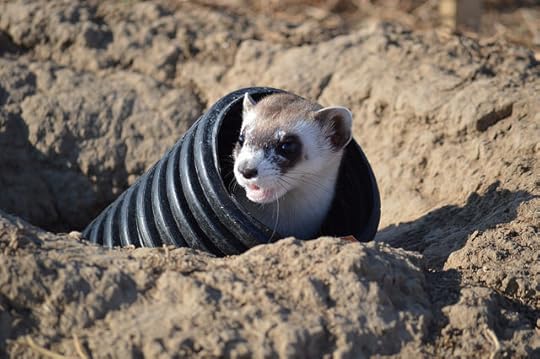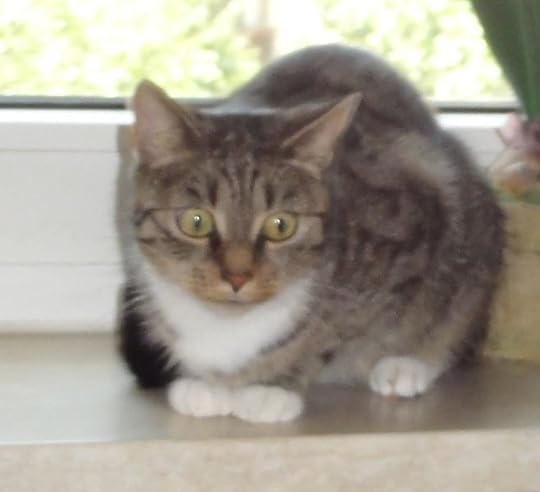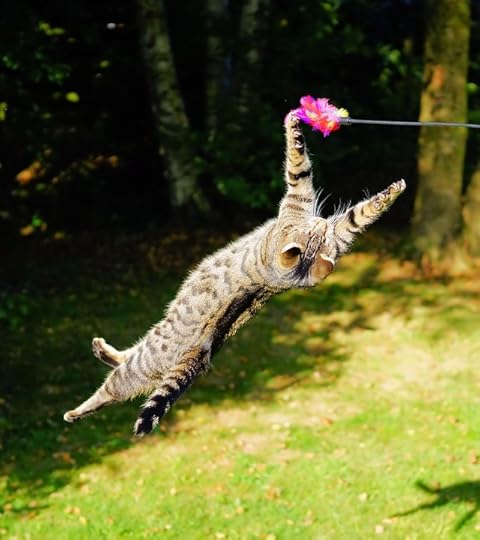The eternal Cheshire cat
Unlike Alice, who was advised to begin at the beginning and stop only when she came to an end, I’d rather begin at the end. The English-speaking world is interested in the Cheshire cat only because Lewis Carroll mentioned it. The origin of the proverbial grin has never been explained, so that, if you hope to receive an enlightening answer from this post, you can very well stop here. Moreover, no one knows the answer even in Cheshire, though some things are beyond dispute: Lewis Carroll did grow up in Cheshire, and it was not he who coined the idiom, though something he heard or remembered about Cheshire cats might have suggested the image of a grinning feline to him. Most of what I’ll say about the subject can be found elsewhere, but a few details will, I hope, pique our readers’ curiosity.
In the North Riding of Yorkshire (the division into ridings is a thing of the past; riding means “thriding,” as it were, “one third,” from Scandinavian, with initial th– lost), gamekeepers used rather odd sayings. For example, one would say, to indicate the desire to be at home: “I wish I had our cat by the tail.” Presumably, that cat neither grinned nor jumped. Another Yorkshire idiom I ran into was: “Grinning like a weasel in a trap.” Americans invented the phrase “Smiling like a possum (eating shit).” The parentheses are important. Obviously, an animal’s smile or ferocious “grin” can indicate disgust. But for every saying in the world there is an opposite. Compare “Smiling like the cat that swallowed (ate, got) a canary.” Against this background, the possessor of a vanishing grin is nothing out of the ordinary. The question is of course why not a cat or the cat but a Cheshire cat was selected as the heroine of the simile.
 A weasel anticipating its doom.
A weasel anticipating its doom.There is a huge corpus of Cheshire idioms. Some of them are, to use my undergraduate students’ favorite word, weird. Consider: “But when, quoth Kettle to his mare,” “He stands like Mumphazard, who was hang’d for saying nothing,” “As fair as Lady Done,” and so forth. Many of them appear in Joseph Cox Bridge’s book Cheshire Proverbs. Against the background of smiling possums and weasels, our Cheshire friend looks rather trivial, but every scholarly problem is like a snowball: it tends to feed on itself, gains momentum, and attracts ever new researchers. That is why so many people have tried to guess what cats inhabit Cheshire, an illustrious county palatine, and what accounts for their unusual sense of humor.
Since Cheshire is famous for its cheese, there could have been a connection between its dairy products and cats’ unappeasable happiness, to quote Mark Twain, but, as a correspondent to Notes and Queries put it in 1850, this explanation is not quite satisfactory. Of the same type is the suggestion that cats in Cheshire enjoyed the great number of mice and rats infesting the port. There are of course more ways than one to turn a cat’s head, but animals hardly ever smile and certainly never laugh when they are happy. The only excuse for my citing the conjectures repeated so many times is that they provide a glance into the past and reflect the state of folk etymology long before even our grandparents were born. Already in the early 1850s, the explanations known about the idiom had sufficient currency in England to make their way into print.
“Some years since [1850] Cheshire cheeses were sold in this town [Bath] moulded into the shape of a cat, bristles being inserted to represent the whiskers. This may possibly have originated the saying.” Yes, but, more likely, the bristles were meant to remind people of the saying, or there was no connection between the two. “I remember to have heard many years ago [1852] that [the phrase] owes its origin to the unhappy attempt of a sign painter of the county to represent a lion rampant, which was the crest of an influential family, on the sign-boards of many of the inns. The resemblance of these lions to cats caused them to be called by the more ignoble name.”
In a much later survey (1904), it was pointed out, with reference to Robert Holland’s Glossary of Words Used in the County of Chester (1886?), “that the grin of the wolf on the arms of the Earl of Chester might have suggested the saying, as ‘the wolf’s head might have been mistaken for that of a cat’. But the resemblance between a wolf’s head and a cat’s head is hardly so obvious as to render this deduction perfectly satisfactory.” True enough. Here is a postscript to the heraldic idea. “Both the lion and the leopard when they occurred in signboard art were vulgarly spoken of as the ‘Cat’… The leopard of course belongs to the cat tribe, and is in reality of the same family with the cat; and it is this affronté or full-faced attitude of the leopard, as distinct from both the statant and the passant position, that I think, probably suggested the ‘grinning’ part of the proverb, and this because the mouth of the lion or leopard is generally represented by heraldic carvers and artists with a curve upwards at each extremity” (1904). I am afraid this explanation is more ingenious than persuasive.
Here is another shot at the cat: “The form in which I have heard this expression used is ‘Grinning like a Cheshire cat chewing gravel’.” Are the last two words merely the addition of some enterprising genius, or are they part of the original simile?” (1852). The spirit of this variant is the same as in the ignominious one about an opossum eating shit, but the alliteration (Cheshire… chewing) makes the hypothesis interesting. We don’t know whether the saying was current many years before it was recorded in the late seventeen-seventies. Probably it surfaced more or less when it was coined. Perhaps there was indeed a saying of the type to grin like a cat chewing gravel. Later, some wit (“wag”), not necessarily from Cheshire, added the name of the county before cat. Chewing gravel was forgotten, and the famous image was born. The novelty enjoyed such great success that women in Cheshire became known as Cheshire cats (an analog of Lancashire witches). Those were old, male chauvinists’ days, and we shudder at their lack of civility.
 This is a sweet jessy cat. It purrs but never grins, and it was not born in Cheshire.
This is a sweet jessy cat. It purrs but never grins, and it was not born in Cheshire.In America the phrase to grin like a chessy cat surfaced in an 1877 dictionary. The mysterious word chessy alternated with jessy. This usage was restricted more or less to Philadelphia, but now jessy cats seem to be all over the place. Jessy means “weak, effeminate” and, according to Urban Dictionary, also “a complete pimp, or stoner, whom everybody likes and who gets all the girls.” The word must have come from the name Jessie. It seems that a jessy cat has nothing to do with Cheshire and does not grin. Under no circumstance can jessy cat be an old “Americanism” brought to the New World by the first settlers. It surfaced on the East Coast about a hundred years after it was recorded in British slang.
 Who said that this cat won’t jump? Just try to make it happy, as Tom Sawyer did, who fed Peter his aunt’s medicine.
Who said that this cat won’t jump? Just try to make it happy, as Tom Sawyer did, who fed Peter his aunt’s medicine.To conclude, cats don’t grin “when they are having a good time,” to return to Mark Twin’s Tom Sawyer and the cat Peter, but they may show their displeasure when for some mysterious reason they chew gravel. This is true of any county and any country in the world.
Image credits: (1) “Black-footed Ferret Release at Rocky Mountain Arsenal National Wildlife Refuge” by USFWS Mountain-Prairie, CC BY 2.0 via Flickr. (2) “Samtpfote Jessy with funny look” by Mattes, Public Domain via Wikimedia Commons. (3) Cat, Flying by Karsten Paulick, Public Domain via Pixabay. Featured image credit: “Alice’s Adventures in Wonderland” by John Tenniel, Public Domain via Wikimedia Commons.
The post The eternal Cheshire cat appeared first on OUPblog.

Oxford University Press's Blog
- Oxford University Press's profile
- 238 followers



